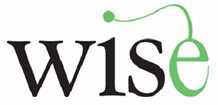|
|
|
 |
|
| |
WISE Course Electives
for Pitt MLIS Students - Spring 2007
|
|
| |
|
| |
|
|
 WISE courses available for Spring
2007 Term:
WISE courses available for Spring
2007 Term:
- WISE Libraries: Designing the Public Library
of the Future
Syracuse University
Spring 2007 Bruce Kingma
Students learn the principles of "managing as
designing" or "design management" to
plan the public library of the future. The course
will introduce the concept of "management by
design," an initiative that seeks to integrate
the ideas of design into project management, organizational
development, and general business practices. The
theory seeks to discover how ideas from design can
inform and improve management and how it complements
analysis and decision-making as core managerial skills.
Students will learn to develop a "design attitude" that
allows them to construct the library of the future
without regard to constraints, shows them how to
work in an interdisciplinary team, and teaches them
to construct many possible alternative designs until
it is clear which provides the best solution. Designing
WISE Libraries will foster new connections between
WISE member schools and encourage the sharing of
ideas by including a maximum of two or three students
from each of the member schools. Students will explore
the future of public libraries and librarianship
through readings from a variety of disciplines, collaborative
assignments, and hands-on design exercises, including
an architectural rendering of their library. They
will attempt to answer the questions: What will make
up the information world of 2030? What does the future
hold for the public library? What services can the
public library of 2030 offer? What will the public
library of 2030 look like? Students will investigate
how internal workings, processes, technology, politics,
and other considerations relate to the external and
internal design of a library building. Course topics
include human resources, developing a plan of service(s),
technology, budgeting, external and internal building
design, and more.
- Writing a Life: Biographies and Personal
Narratives
Rutgers University
Spring 2007 GraceAnne A. DeCandido
Biographies, autobiographies, diaries, and
personal narratives are all ways of telling the narrative
of a life. In this course, we will examine how writers
take a life lived and turn it into a story. We will
read picture books, chapter books, collective biographies,
autobiographies, and biographical narratives for
young people of all ages. Most titles will be recent
(within the past five years). The focus will be on
reading widely, and on intense engagement with the
texts.
- Human Resources Management
The University of North Carolina at Chapel Hill
Spring 2007 Mary Wilkins-Jordan
An in-depth look at the management of human
resources in libraries and other information agencies.
Includes topics such as recruitment, hiring, job
analysis, performance appraisal, training, and compensation.
- Leadership Issues in Management
The University of Maryland
Spring 2007 Ann Prentice
This elective course will be of interest to all students;
those who aspire to supervisory roles and those who
participate in the activities of the organization
under the leadership of another. Upon completion
of the course, the student will: be aware of the
demographics within the information professions that
point toward major leadership changes in the field,
be familiar with the components of leadership, understand
and apply sound principles of leadership, understand
that leadership/followership is a collaborative activity
in which those who lead and those who follow work
together to achieve goals, and understand the importance
of mentoring future leaders. Using a combination
of research, current events, and literature, the
course will focus on elements of leadership and explore
a number of topics basic to the study of leadership.
The course will use short stories, novels, and drama
as the “case studies” for discussion.\
- Business Information
The University of Illinois
Spring 2007 Fernando Elichirigoity
A study of the literature, information sources
and reference aids in the area of business. Introduces
the student to the U.S. business information environment.
Examines the impact of the national economy and international
trade on U.S. industries and companies and the nature
of various business functions within a company in
an attempt to understand what business information
is needed and how it may be used by individuals within
an organization. Provides a general mapping of the
variety of external information sources.
- Evaluating Program and Services
The University of Illinois
Spring 2007 Debra Johnson
This course provides both a theoretical
base and an application base for the design and conduct
of evaluations. The course includes an introduction
to evaluation by reviewing history. It also provides
a review of several landmark events and theoretical
foundations of evaluation. The remainder of the course
is focused on designing evaluations that can be applied
to real needs that exists in the LIS context. This
course will view the LIS context very broadly to
include libraries, museums, retrieval system, and
other technology based processes. Students will be
able to fit the content of this course to their own
specialization or work context. Outcome evaluation
will be emphasized in the course, but other forms
of evaluation will be included.
|
|
|
|
|
| webmaster
For more information
about the Library and Information Science Program,
please call 412.624.9420 or e-mail Debbie Day
School of Information
Sciences, University of Pittsburgh,
135 North Bellefield Avenue, Pittsburgh, PA 15260
Tel: 412.624.3988 | Fax: 412.624.5231
For information about Admissions & Financial Aid, please
contact
Shabana Reza at 800.672.9435
Information Science & Technology Email: isinq@sis.pitt.edu
Telecommunications Email: teleinq@sis.pitt.edu
Library & Information Science Email: lisinq@sis.pitt.edu
|
|